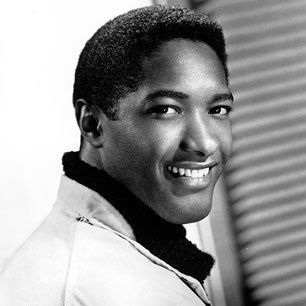Sam Cooke (Samuel Cook)

Sam Cooke
Singer, Gospel, Blues, Soul and Pop, Songwriter. Sam Cooke is considered the father of soul music and was immensely popular in both the black and white communities. This intelligent performer was not only the overseer and manager of the business side of his own career but founded his own record label and publishing company. He was a brilliant composer who wrote most of the songs used in his performances. He was born Samuel Cook (“e” added later), one of five boys and three girls in Clarksdale, Mississippi to Reverend Charles and Annie Mae Cook, his father a Baptist minister. Samuel grew up in Chicago’s Bronzeville neighborhood after his parents received an assignment to pastor the little Church of Christ Holiness. His early singing and training came from membership in the choir of the church and confined to gospel music While attending Wendall Phillips HS, located at 39th & Prairie Avenue, with a straight A average, Sam, together with two brothers and two sisters performed as a gospel group calling themselves “The Singing Children.” Sam at age fifteen, became the lead singer of the teenage gospel group, the “Highway QC’s” that performed in churches and at various religious gatherings. His notoriety, at nineteen, led him to the “Soul Stirrers” as the lead singer. During performances with this group, some of his most popular gospel songs were introduced…”Touch the Hem of His Garment” “Nearer to Thee” and “That’s Heaven to Me.” He went to popular music in 1956 with a single recording “Lovable,” which resulted in excommunication from the Soul Stirrers. The overall result was his first big hit, a song he wrote with his brother, L.C Cooke “You Send Me,” that was a million plus seller in 1957 alone. A series of romantic ballads and teen pop singles followed…”for Sentimental Reasons” “Everybody Loves to Cha Cha Cha’ “Only Sixteen” and the ultimate “What a Wonderful World.” Sam signed with RCA Records and they had a winner on their hands. His songs “Chain Gang” “Sad Mood” ” Cupid” “Twistin’ the Night Away” and “Bring It on Home to Me,” were at the top of the charts. However, two released live albums, one recorded at the Copa Club in New York and the other at the Harlem Square Club in Miami, consisting of many beautiful melodies and gritty soul numbers, were among his best. The drowning death of his infant son in 1963 cast a pall on his career placing him into a long period of depression and dormancy. A short time later, the ultimate disaster struck in Los Angeles…he was shot to death at age 33. The police concluded the shooting was justifiable and a convened Inquest jury rendered a verdict after only fifteen minutes of deliberation… Justifiable Homicide. His remains were taken to Chicago for a wake where thousands viewed his remains followed by a service. The body was returned to Los Angeles where final tributes were given at Mount Sinai Baptist Church with singing by Lou Rawls, Bobby Blue Bland, Arthur Lee Simpkins and Ray Charles. Interment followed at Forest Lawn, Glendale. Legacy…Many of his songs were released posthumously, some became hits including “A Change Is Gonna Come,” an early protest song. He was inducted a charter member of the Rock and Roll Hall of Fame located in Cleveland, in 1986. Books authored…”You Send Me: The Life and Times of Sam Cooke” by Daniel J. Wolff, “Sam Cooke Portrait of a Legend” by himself and “Dream Boogie: The Triumph of Sam Cooke” by Peter Guralnick.
Born
- January, 22, 1931
- Clarksdale, Mississippi
Died
- December, 11, 1964
- Los Angeles, California
Cause of Death
- gun shot
Cemetery
- Forest Lawn Memorial Park
- Glendale, California





